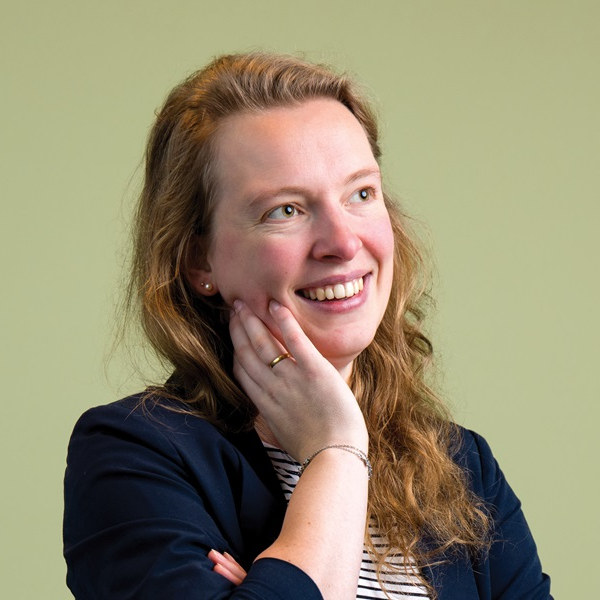Hillianne de Jonge
Employee portrait

Hillianne de Jonge
‘I’m constantly asking myself: Is it logical?’
Before joining Witteveen+Bos four years ago as a data specialist, Hillianne de Jonge studied applied mathematics and obtained a master’s degree in operations research. Her affinity with applied mathematical knowledge has proved useful on a wide range of projects.
Social purpose
‘Applying mathematical knowledge on projects is much more tangible than pure mathematics. Following my studies, I didn’t want to work in ICT – that’s not for me. While studying, I also obtained a minor teaching qualification in mathematics. Education certainly has a social purpose, which was something I considered important when I started looking for work. But my ambition lay in the business world. In my current role as a data specialist, I come into contact with all Witteveen+Bos’s areas of expertise, such as water quality, the energy transition, nature and the environment, and all kinds of projects at sea, in deltas and on land. That diversity appeals to me immensely. I’m constantly being challenged in new ways.’
Is it logical?
‘You learn something on every project, and I exploit that knowledge on future assignments. I’ve been working for four years now as a data specialist. Currently, our team totals twelve colleagues. At first, I was given a task and I carried it out. But now I keep an overview of the project’s context and am quicker to understand what works and what doesn’t. In this digital age, the amount of data is growing exponentially. We’re really interested in all that data, but it’s also important to regularly zoom out, look at the bigger picture, and check whether the data actually helps answer project questions. Clients and colleagues need to obtain insights from data analysis and be able to do something with the information. That’s why I’m constantly asking myself whether what we’re doing is logical. ‘Is it logical?’ – a typical mathematician’s question!’

Data prophet
‘One project might be about nitrous oxide in wastewater treatment plants. On another, I’ll be working with colleagues on the impact of boat traffic on a waterway’s banks and the plants that grow there. On all these projects, we collect large amounts of raw data. We often check its quality first using the ‘data prophet’, a model we developed that checks time series for anomalous and missing data. We can then make reports, models or dashboards to help clients obtain insights into the data, or we can answer questions using validated, useful information.’
More information?
